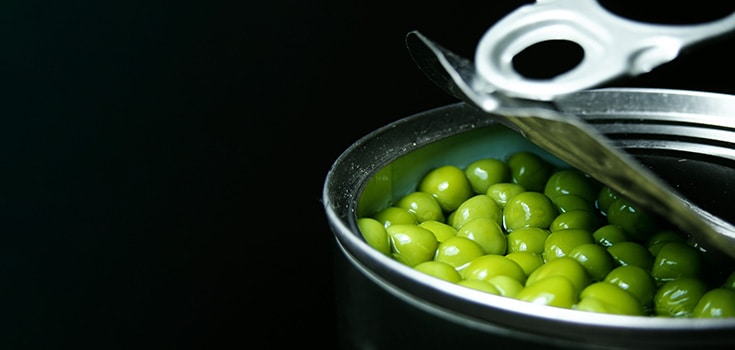How to Preserve Your Food Without Electricity

Whether you’re facing Hurricane Sandy or not, it is essential to know at least a few ways in which you can preserve your food without any electricity. If you reside on the East Coast and are within the main trajectory of Hurricane Sandy, chances are that you will be without power for at least a considerable amount of hours (or potentially days). The good news is that you don’t have to let all the items in your refrigerator or freezer rot.
Instead, follow these simple tips to ensure that your food remains cool, fresh, and ready to eat along with the rest of your food supplies. In the event of a major disaster, this is highly essential as the amount of food you can retain without electricity will directly impact your quality of life. This article will specifically cover preserving the freshness of your food in such a scenario. For overall preparedness, I recommend you read 5 Ways to Prepare for Hurricane Sandy.
Tips for Preserving Before You Lose Power:
- Make sure to maintain a temperature of 40 degrees or lower within your refrigerator and 0 degrees or lower within your freezer. This creates an optimal environment for keeping your food items as cold as possible and maintaining this temperature after a power outage. In the hours right before the storm, turn these temperatures as low as they can go.
- Create or buy some ice and place it in the freezer; this not only helps to keep the freezer cool, but you can take this ice and place it in a cooler if necessary after the electricity outage. The best way is to fill containers (water bottles, jars, etc.) with water and freeze them. This saves space and provides large amounts of ice, but in a serious disaster situation can also provide extra water for drinking or otherwise.
- Group together your food items in the freezer to ensure that they will maintain a colder temperature for longer.
- Freeze food items that you do not plan on eating for longer periods of time. Bread, vegetables, milk, and other items may go bad before you even need to eat them.
- If you’re worried about flooding, store all of your food in higher areas such as the highest shelves of pantries.
- Use a high quality water filter to fill all containers in your home with extra drinking water in the event of a prolonged outage.
How to Preserve Your Food Without Electricity:
- Use a thermometer to determine the temperature inside the fridge and freezer.
- Remember that all perishable food should be kept below 40 degrees. In the event that perishable food is kept above 40 degrees for more than a total of 2 hours, bacteria will multiply rapidly. In this case, you will need to dispose of these items.
- Try and keep your fridge and freezer closed as much as possible to preserve a low temperature. In the event that your freezer has become too hot, you may need to transport food into a cooler full of ice.
- If your food has come into contact with any flood waters and is not sealed in a waterproof container (that actually worked), then you will need to discard this food along with any other items that may have been contaminated like bottles, cutting boards, and others.
- Never do a ‘taste test’ to see if perishable foods like meat are still fresh. The last thing you need in a disaster scenario is to become ill.

Use peroxide to kill germs. Peroxide is non-toxic, but don't drink it, unless it's food grade and diluted.
create panels out of insulating material to divide your freezer into compartments. When you open your freezer, not all your food will be exposed to outside warm air, keeping it colder longer.
White vinegar is safer to kill germs and cheaper
Did I once read the word salt or sugar? Salt crenates bacteria and other food infectants; perfect? No! Did you ever recommend a silver coin or two? I am amazed at the advice given here; where in God's name are all these things coming from? Some are still without power and what now for them? NOT ONE THING IN THIS INFORMATION IS APPLICABLE TO THEM! NOT ONE! Long have the freezers thawed; what then? Always, salt is a must in a home even after the talking heads have hated it in the last decades; it's the most valuable things you can have; yes, you can even clean with it! Scours great and disinfects, too; hydrogen peroxide? Invaluable! You can use salt, baking soda and a capful of H2O2 and a cup of warm water for sinus infection, the best cure ever! Rinsing out sinuses with this is very effective as needed. Real advice is hard to find! Imagine those in the cold and it takes my breath away in sympathy for them. Have you donate lately?
Yummy recipe indeeed!!! Sounds like lip-smacking!! . Thanks!!